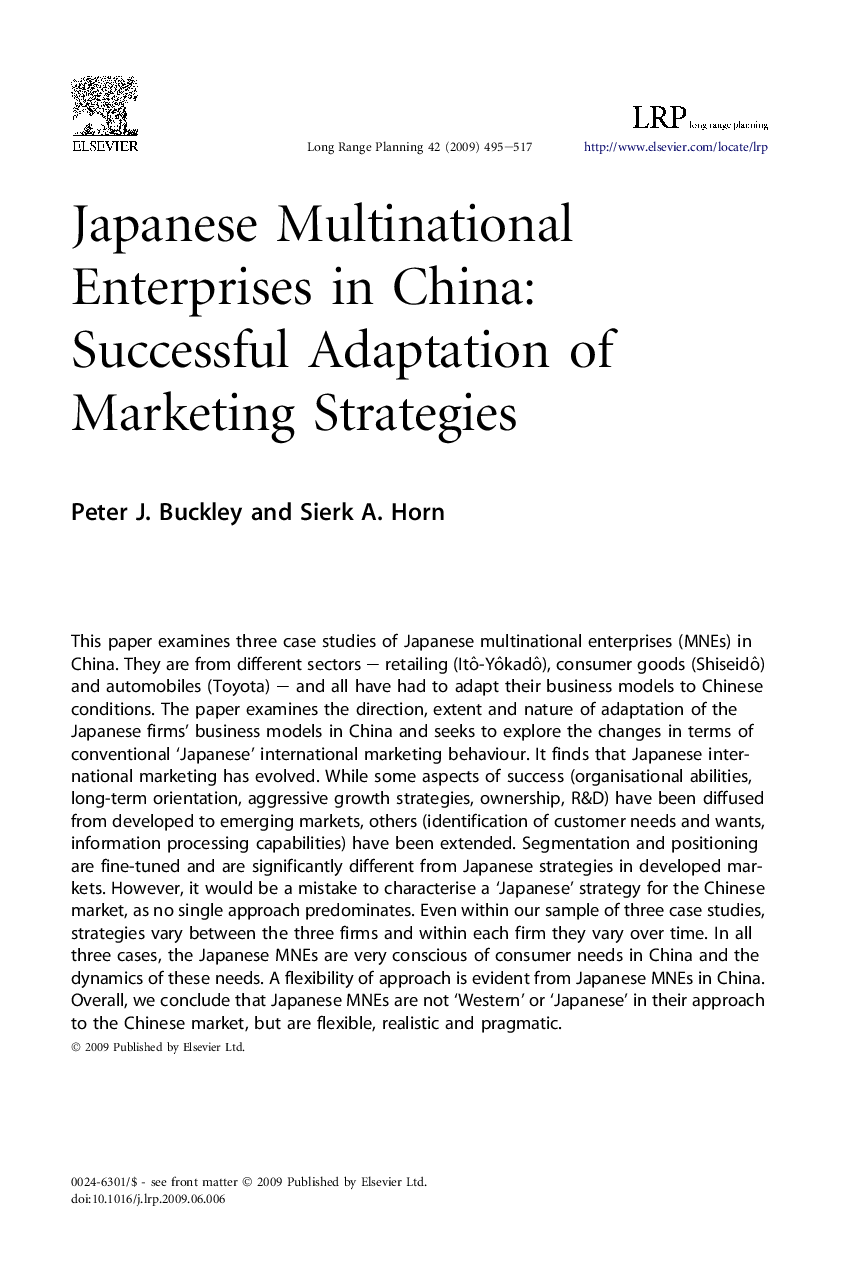| Article ID | Journal | Published Year | Pages | File Type |
|---|---|---|---|---|
| 1021424 | Long Range Planning | 2009 | 23 Pages |
This paper examines three case studies of Japanese multinational enterprises (MNEs) in China. They are from different sectors – retailing (Itô-Yôkadô), consumer goods (Shiseidô) and automobiles (Toyota) – and all have had to adapt their business models to Chinese conditions. The paper examines the direction, extent and nature of adaptation of the Japanese firms' business models in China and seeks to explore the changes in terms of conventional ‘Japanese’ international marketing behaviour. It finds that Japanese international marketing has evolved. While some aspects of success (organisational abilities, long-term orientation, aggressive growth strategies, ownership, R&D) have been diffused from developed to emerging markets, others (identification of customer needs and wants, information processing capabilities) have been extended. Segmentation and positioning are fine-tuned and are significantly different from Japanese strategies in developed markets. However, it would be a mistake to characterise a ‘Japanese’ strategy for the Chinese market, as no single approach predominates. Even within our sample of three case studies, strategies vary between the three firms and within each firm they vary over time. In all three cases, the Japanese MNEs are very conscious of consumer needs in China and the dynamics of these needs. A flexibility of approach is evident from Japanese MNEs in China. Overall, we conclude that Japanese MNEs are not ‘Western’ or ‘Japanese’ in their approach to the Chinese market, but are flexible, realistic and pragmatic.
